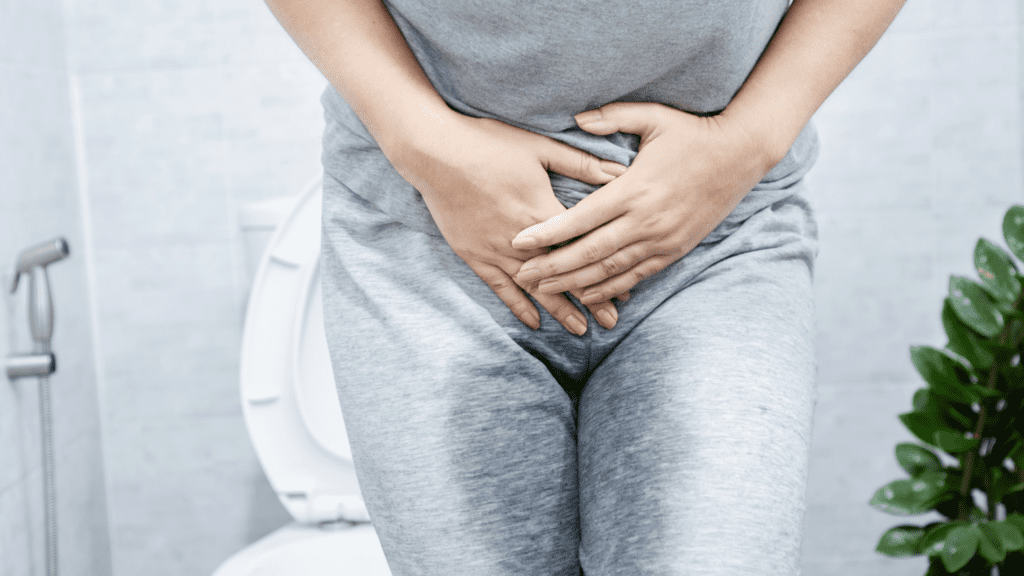Overactive Bladder (OAB) is a condition characterized by sudden, frequent urges to urinate, often accompanied by involuntary bladder contractions. This can lead to the urgent need to urinate multiple times during the day and night, sometimes resulting in leakage.

Overactive Bladder (OAB)
Detailed Information
The exact cause of OAB is often unknown, but it may result from:
• Nerve signals: Miscommunication between the brain and bladder, causing sudden bladder contractions.
• Bladder muscle overactivity: Spasms in the bladder muscles can lead to frequent urges to urinate.
• Underlying conditions: Certain neurological disorders, such as Parkinson’s disease or multiple sclerosis, may contribute to OAB.
• Nerve signals: Miscommunication between the brain and bladder, causing sudden bladder contractions.
• Bladder muscle overactivity: Spasms in the bladder muscles can lead to frequent urges to urinate.
• Underlying conditions: Certain neurological disorders, such as Parkinson’s disease or multiple sclerosis, may contribute to OAB.
• Frequent urination (often eight or more times per day).
• Strong, sudden urges to urinate.
• Urge incontinence (leakage following a strong urge) .
• Nocturia (waking up multiple times at night to urinate).
• Strong, sudden urges to urinate.
• Urge incontinence (leakage following a strong urge) .
• Nocturia (waking up multiple times at night to urinate).
While OAB isn’t always preventable, some lifestyle habits can help manage symptoms:
• Limiting caffeine and alcohol, which can irritate the bladder.
• Staying hydrated but avoiding excessive fluid intake.
• Maintaining a healthy weight to reduce pressure on the bladder.
• Practicing pelvic floor exercises to improve bladder control.
• Limiting caffeine and alcohol, which can irritate the bladder.
• Staying hydrated but avoiding excessive fluid intake.
• Maintaining a healthy weight to reduce pressure on the bladder.
• Practicing pelvic floor exercises to improve bladder control.
Treatment for OAB focuses on symptom management and may include:
• Bladder training: Techniques to gradually increase the time between urination.
• Dietary changes: Avoiding bladder irritants such as spicy foods, alcohol, and caffeine.
• Pelvic floor exercises: Exercises, such as Kegels, to strengthen bladder muscles.
• Medications: Anticholinergic or beta-3 agonist drugs to relax the bladder muscles and reduce urgency.
• Nerve stimulation therapy: Techniques like sacral neuromodulation to regulate bladder control.
• Surgery: In rare, severe cases, surgery may be considered.
• Bladder training: Techniques to gradually increase the time between urination.
• Dietary changes: Avoiding bladder irritants such as spicy foods, alcohol, and caffeine.
• Pelvic floor exercises: Exercises, such as Kegels, to strengthen bladder muscles.
• Medications: Anticholinergic or beta-3 agonist drugs to relax the bladder muscles and reduce urgency.
• Nerve stimulation therapy: Techniques like sacral neuromodulation to regulate bladder control.
• Surgery: In rare, severe cases, surgery may be considered.
Book Your Consultation Now
Schedule an appointment with the leading uro-oncologist in Bangalore, Dr. Anil
Kumar T. Benefit from expert care and advanced treatment options for all your
urological needs, delivered with a patient-centered approach.

Resolve Your Queries
Answers to the most common inquiries about urological conditions, treatments, and patient care. Designed to offer quick guidance and help you better understand, ensuring you feel informed and confident in your healthcare decisions.
Still have queries about Urology & Uro Oncology? Hit the button below.
Accordion Tab Title 2
Lorem ipsum dolor sit amet, consectetur adipisicing elit. Optio, neque qui velit. Magni dolorum quidem ipsam eligendi, totam, facilis laudantium cum accusamus ullam voluptatibus commodi numquam, error, est. Ea, consequatur.
Accordion Tab Title 3
Lorem ipsum dolor sit amet, consectetur adipisicing elit. Optio, neque qui velit. Magni dolorum quidem ipsam eligendi, totam, facilis laudantium cum accusamus ullam voluptatibus commodi numquam, error, est. Ea, consequatur.
Visit Us
Zymus Hospital Address
No.1, K NO. 92, Nanjappa Complex, Kanakapura Rd, Raghuvanahalli, Bangalore City Municipal Corporation Layout, Bengaluru, Karnataka 560062
Menu
Menu
Quick Links
Menu
Copyright © 2024. Dr Anil Kumar T

